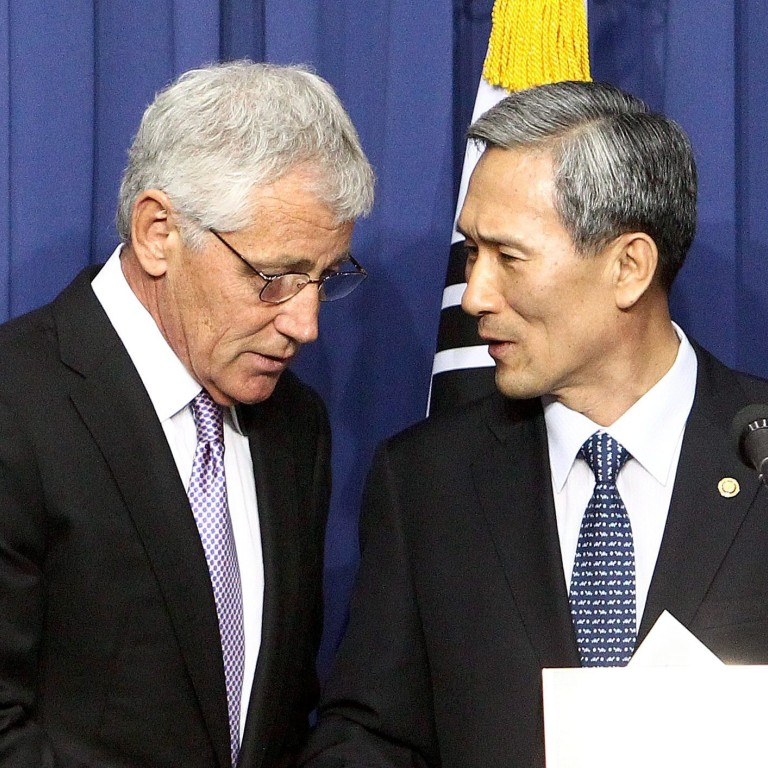
South Korea and US sign pact to deter North Korea nuclear strike
Operational plan establishes 'strategic framework' for dealing with 'key North Korean nuclear threat scenarios'
South Korea and the United States signed a new strategic pact on Wednesday that provides a “tailored” deterrence against the specific threat of a nuclear attack from North Korea.
The operational plan establishes a “strategic framework” within the two countries’ military alliance for dealing with “key North Korean nuclear threat scenarios” both now and in the event of war, according to a joint statement.
The plan was signed by visiting US Defence Secretary Chuck Hagel, who reiterated US commitment to using all its military capabilities - conventional and nuclear - to provide South Korea with an “extended deterrence that is credible, capable and enduring”.
The joint statement provided no specific details of the measures envisaged by the new strategy, which is certain to be condemned by North Korea as a provocative step.
There should be no doubt that North Korean use of chemical weapons would be completely unacceptable
At a press briefing with his South Korean counterpart Lim Kwan-jin, Hagel stressed that the plan covered all the North’s weapons of mass destruction, including chemical weapons.
According to South Korean defence officials, North Korea has up to 5,000 tonnes of chemical weapons - an alleged stockpile that has been highlighted by the use of such weapons in Syria.
“There should be no doubt that North Korean use of chemical weapons would be completely unacceptable,” Hagel said.
Kim said the bilateral plan would “greatly enhance the efficacy of the alliance’s deterrence against North Korea”.
During his talks with Kim, Hagel said he had listened “very seriously” to South Korea’s argument for extending US command of combined US and South Korean forces in the event of war with the North.
South Korea is scheduled to take over wartime operational command in 2015, but has requested the transition be pushed back in light of the growing nuclear threat from North Korea.
Washington has indicated it wants to keep to the original schedule, but Hagel said discussions on the timing would continue, taking into account evolving conditions on the peninsula.
